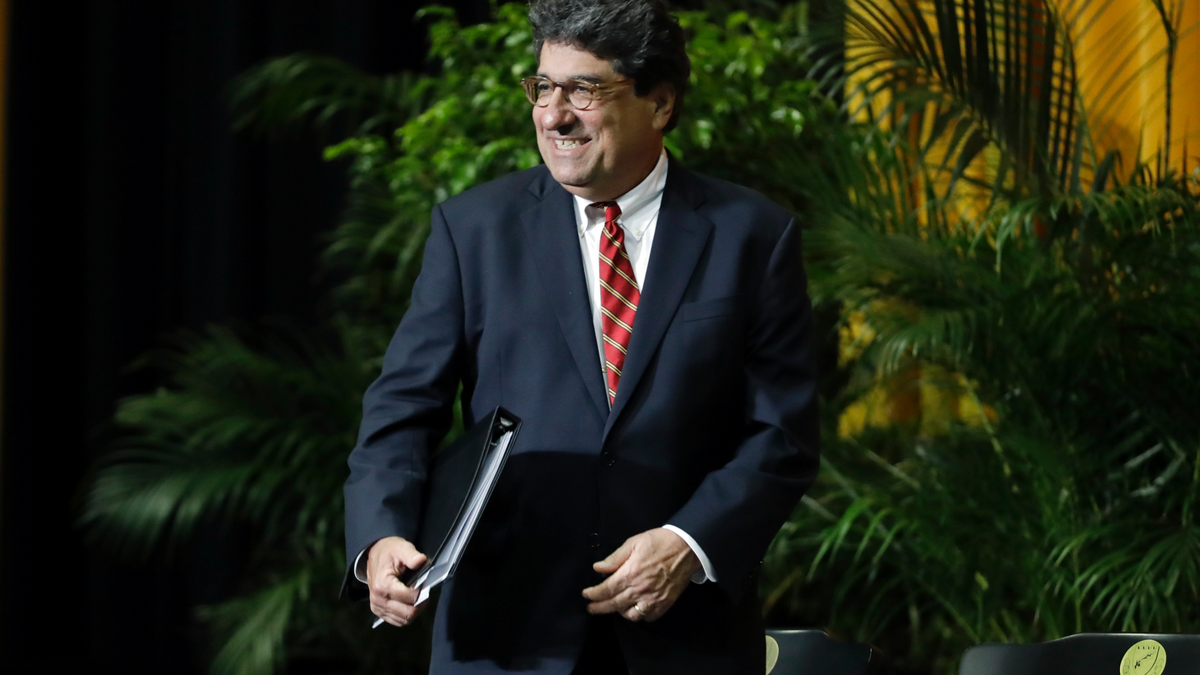
FILE - In this May 10, 2018, file photo, Vanderbilt University Chancellor Nick Zeppos takes part in Senior Day activities in Nashville, Tenn. Citing health reasons, Zeppos has announced plans to resign on Aug. 15, 2019, after more than a decade in the role. Zeppos announced Tuesday, April 2 that he plans to take a yearlong sabbatical before he returns to Vanderbilt as a law professor. (AP Photo/Mark Humphrey, File)
NASHVILLE, Tenn. – Citing health challenges, Vanderbilt University Chancellor Nicholas Zeppos announced Tuesday he plans to resign on Aug. 15 after more than a decade in the role.
Zeppos said he will take a yearlong sabbatical and then return to Vanderbilt as a law professor.
"I truly love Vanderbilt and serving you has been a privilege. Yet my health is presenting challenges that demand my focus, with the love and support of my family," Zeppos wrote in a message to the Vanderbilt community.
Provost and Vice Chancellor for Academic Affairs Susan Wente will begin serving as interim chancellor on Aug. 15 and will retain her current job as well. Vanderbilt Board of Trust Chairman Bruce Evans will lead a search for Zeppos' permanent successor.
Zeppos replaced former chancellor Gordon Gee as the private Nashville university's interim leader in 2007 and was appointed chancellor in 2008.
Zeppos, a legal scholar from Milwaukee, had served as the university's chief academic officer since 2002. He joined the Vanderbilt faculty in 1987 as an assistant law professor.
As chancellor, Zeppos drew attention for focusing on inclusiveness at the southern, red-state university.
In 2012, Zeppos succeeded in drawing a veto from Republican Gov. Bill Haslam of GOP-backed legislation that tried to force Vanderbilt to exempt student religious groups from its nondiscrimination policy. The proposal followed accusations by a gay Vanderbilt student that a Christian fraternity dismissed him because of his sexual orientation.
Zeppos then spearheaded a 2016 deal in which Vanderbilt paid $1.2 million to the United Daughters of the Confederacy to remove an inscription containing the word "Confederate" from one of its dorms.
"You can memorialize individuals without taking sides in the bloodiest war that was fought over the divisive issues of slavery and equality that we're still struggling with today for those young people coming onto campus," Zeppos said at the time.
He also he led the 2008 start of Opportunity Vanderbilt, the university's financial aid program, helped reshape its residence hall living system, and led the 2016 transition of the university and its medical center into separate legal and financial entities.









































